Best Keyword Research Tools
Hi there, I'm Kyle, an SEO expert who has been working in this field for years. I know firsthand how crucial it is to find the right keywords to improve your website's SEO rankings. That's why I'm excited to share some of the best keyword research tools that I've tried and tested over the years.
If you're looking to drive traffic to your website, finding the right keywords is key. It's not just about choosing any old keyword, but finding profitable and relevant ones that will help you rank higher on Google. As an SEO consultant, I've used a variety of keyword research tools to help clients, and myself improve SEO strategies and rank better.
In this guide, I'll be sharing some of the best keyword research tools that I've used and found to be effective. These tools can help you uncover hidden keywords, analyze your competitors' keywords, and find profitable long-tail keywords that you may have missed. With these tools, you'll be able to take your SEO strategy to the next level and drive more traffic to your website. So, let's dive in!
Best free keyword research tools
Sometimes, the best things in life are free. Here are some of the best free keyword research tools that can help you find profitable and relevant keywords:
1. Google Keyword Planner
If you're new to keyword research, Google Keyword Planner is a fantastic free tool to get started with. With its recent updates, you can easily find relevant keywords and get ideas for new and trending keywords. It also provides insights on how often keywords are searched and the level of competition for each, making it easier to choose keywords that have less competition.
My favourite use for Google Keyword Planner is to find trending topic opportunities.
Simply open up the Keyword Planner, and select 'Get New Ideas'. Enter in a few topically relevant terms (these can be quite broad).
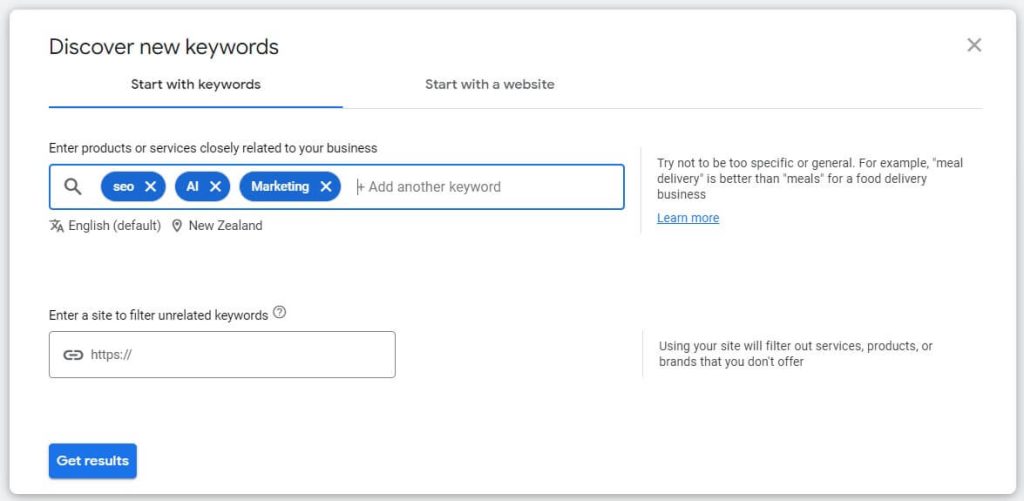
Enter your location such as 'New Zealand' and click on 'Get Results'
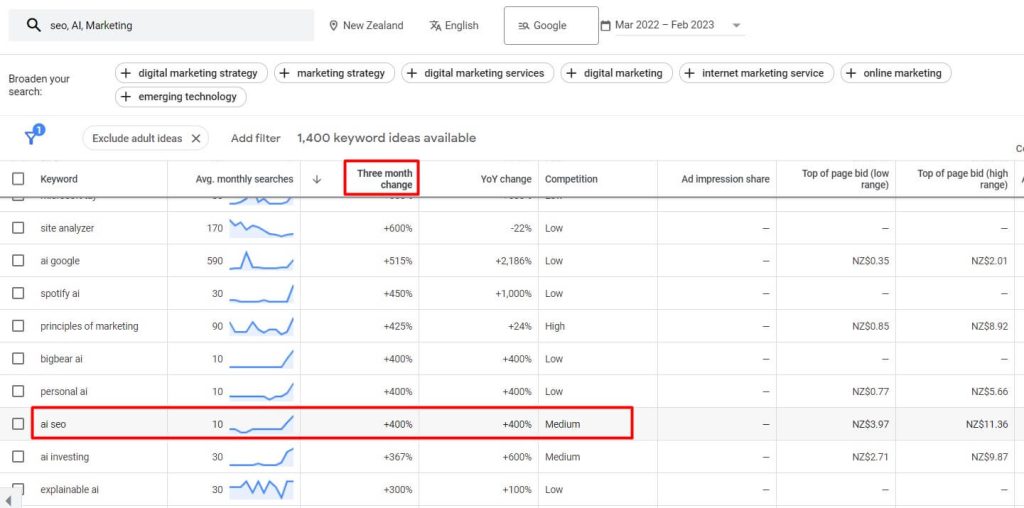
Using the 'Three month change' column, you'll see the keywords that have recently spiked in interest. Obviously, my example was a little skewed from including AI within SEO, so there are a lot of AI related keywords. But generally you'll find loads of relevant trending keywords within your industry that you can use as part of your marketing strategy.
Google Keyword Planner is a versatile tool that can be used for both organic and paid search campaigns. It's perfect for identifying high-volume keywords that can help increase traffic to your website. With its ability to provide data on competition levels, you can gain insights into which keywords will be easier to rank for and which ones may require more effort.
2. Google Search Console
Yes, another free Google product.
For this, you'll need to ensure that you have Search Console installed on your website, and that the website actually has some data. For newer sites, even if you've got a few pages you should be okay to use this once they are indexed and collecting information. Typically within the first few weeks of a site being indexed would be enough to get the first information.
Search Console provides such a broad range of opportunities to discover data about your site that it could be an entire blog post dedicated to it.
For now, we'll start with the basics. Search Console provides you with information around which pages are generating impressions and clicks to your website. It also has a 'Queries' tab under Performance that shows you the queries that are generating these clicks and impressions.
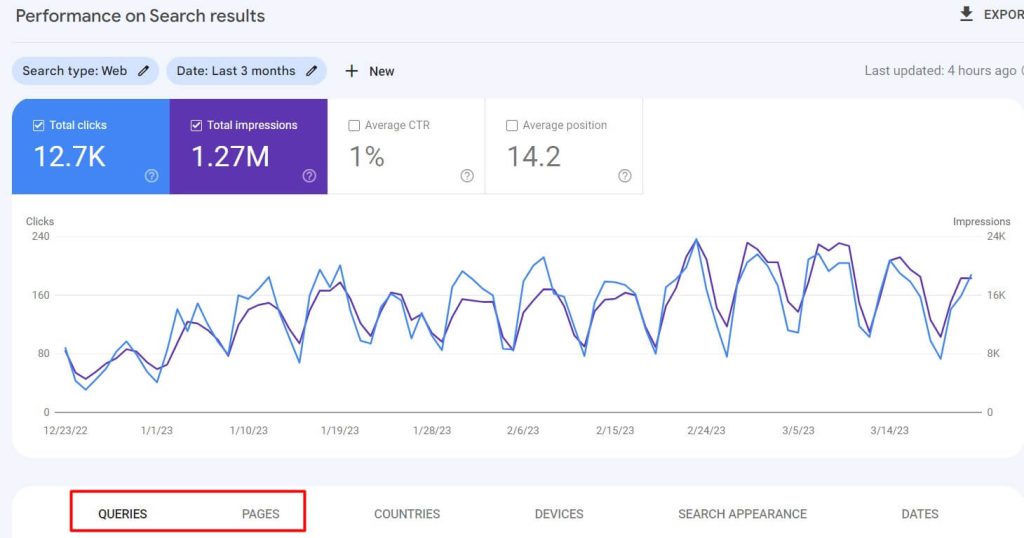
To begin with, the Queries and Pages tabs are probably going to be your most useful places to start looking.
A nice quick-win strategy is to find pages with impressions that have low or zero clicks. Find the page and click on it to select the page.
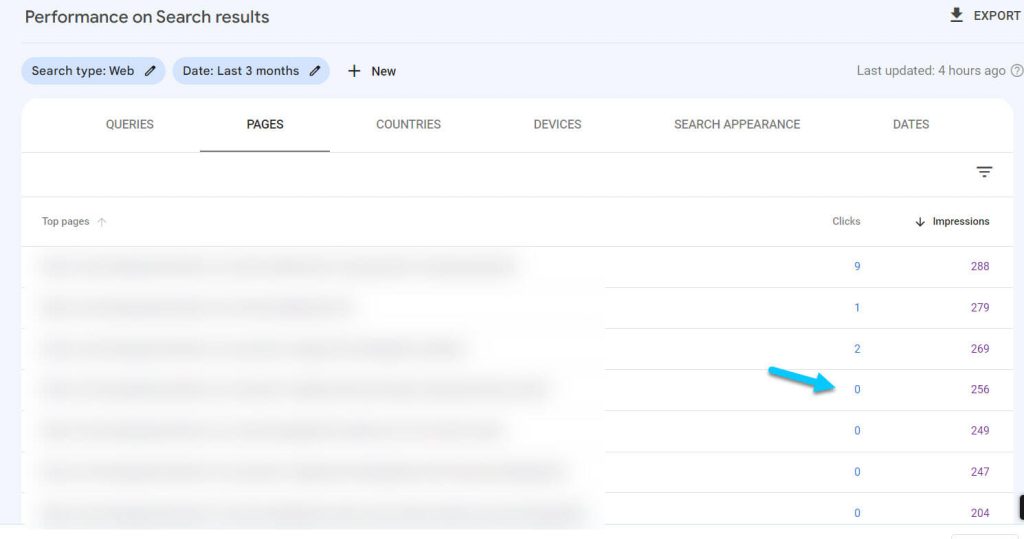
Go back to Queries. You'll see that it has now filtered the results specifically for that page. Now you have a list of keywords that your page ranks somewhere in Google for and is getting impressions, but no clicks.
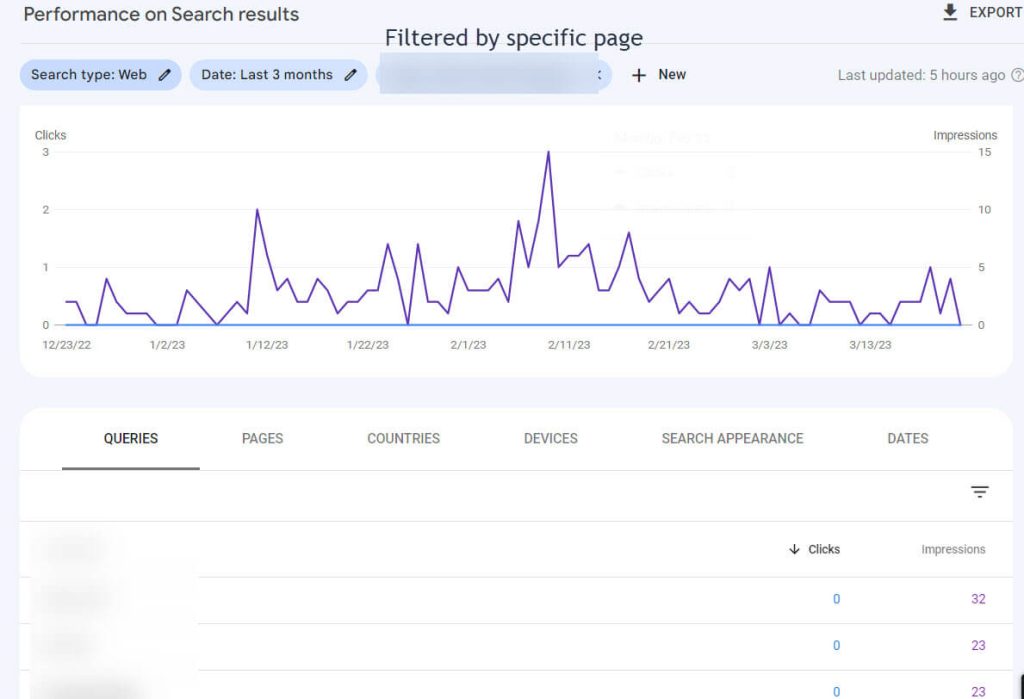
You can then determine the most relevant keywords for the page and start working on identifying ways to improve your SEO performance to turn those zero clicks to one or more. This is a very basic, but powerful strategy once you apply it across multiple pages and multiple keywords.
Keep in mind that this data is somewhat sampled, but it can still be useful for identifying keyword opportunities. The major drawback is that it doesn't show search volume counts, but you can get those added by using the 'Keywords Everywhere' third-party tool.
ChatGPT For Keyword Research
Yes, chatGPT can work wonders for keyword research and it just takes a bit of creativity. The key is using quality prompts. ChatGPT can be utilized for so many things within SEO and it is an incredibly valuable resource to start exploring if you haven't already.
For example, let's say you have some service pages and a few blog posts. You're stuck for ideas around which supporting content you need to create, and require some help coming up with keywords to target and blog posts fill the gap in your content.
You can take your current sitemap and get a list of all your current URLs (or export them by scraping with something like Screaming Frog). Grab the titles from them or let ChatGPT infer them based on the page URL.
You can then prompt it to analyze the list of pages you have, and request a list of supporting topics for what ever service or topic you are wanting to focus on.
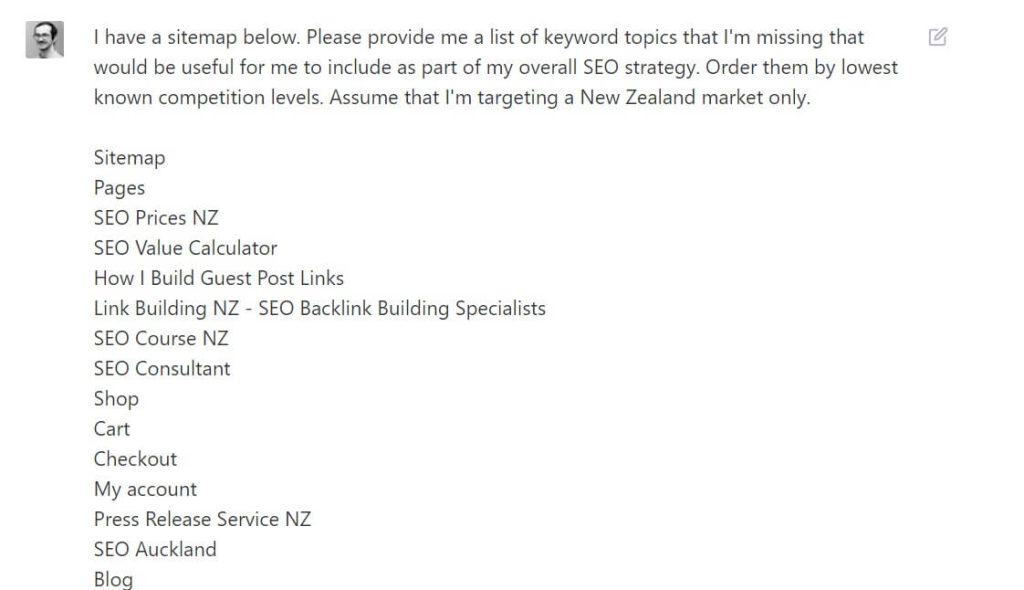
For better results, you can tell ChatGPT to sort the list based on things such as competition or search volume demand. The more creative you are with your prompts, the better results you'll get.
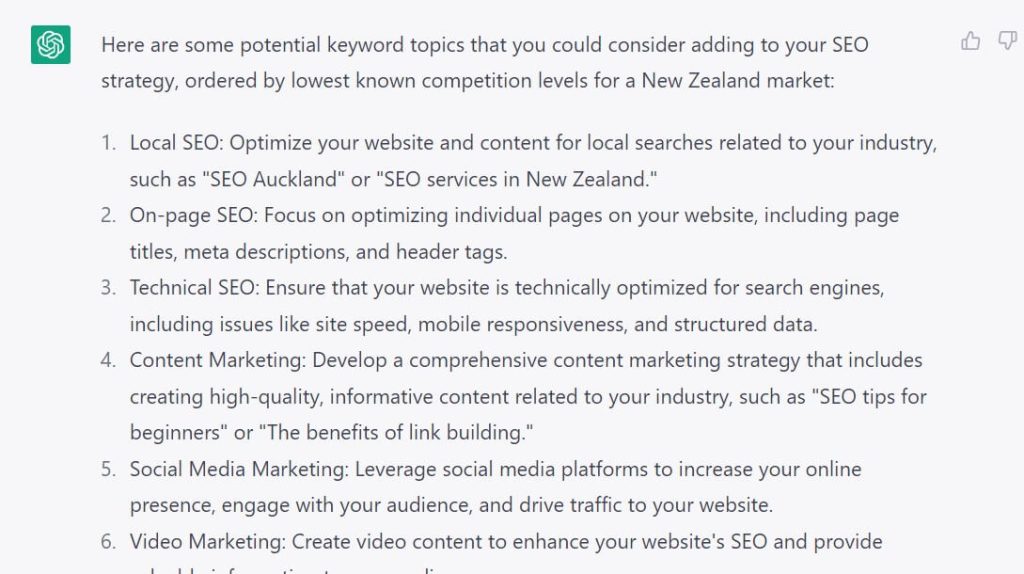
Keep in mind I spent less than 20 seconds from idea to result. Obviously the prompts can be much more creative, and you can get far better results. But that is just a quick idea to help provide a practical use case.
You could grab a competitors sitemap and ask it to compare it to yours and identify keyword topics that are of low competition or easy to rank for. The possibilities are literally endless depending on your creativity.
Why keyword research is important
Before diving into the best keyword research tools, it's important to understand why keyword research is so important. Keyword research is the process of identifying the search terms and phrases that people use to find information about a particular topic. By identifying these keywords, you can optimize your content to rank higher in search engine results pages (SERPs), increasing your website traffic and ultimately, your revenue.
For local businesses, this means more leads generated. For affiliate marketing websites, this means more commissions.

